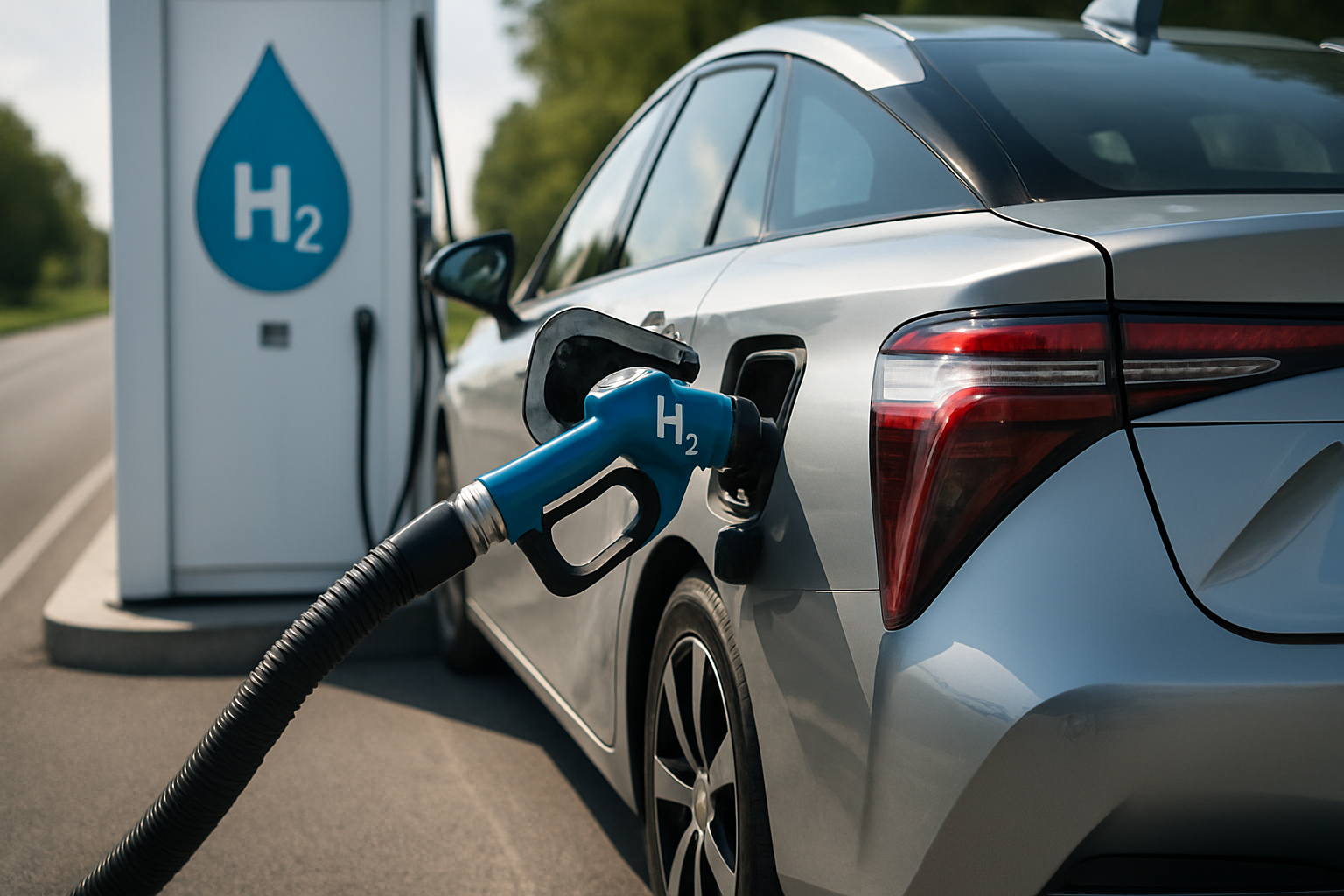Unveiling the Potential of Hydrogen Fuel Cell Vehicles
The automotive landscape is on the cusp of a revolutionary shift, with hydrogen fuel cell vehicles (FCVs) emerging as a promising alternative to traditional combustion engines. As the world grapples with environmental concerns and the need for sustainable transportation, FCVs offer a tantalizing glimpse into a future where vehicles emit nothing but water vapor. But what exactly are these vehicles, and how do they work? Let's dive into the world of hydrogen-powered cars and explore their potential to reshape the automotive industry.

Infrastructure Challenges and Solutions
One of the primary hurdles facing widespread adoption of hydrogen FCVs is the lack of refueling infrastructure. Unlike conventional gas stations, hydrogen fueling stations are few and far between. However, countries like Japan, Germany, and the United States are making significant strides in expanding their hydrogen infrastructure. In California, for example, the California Fuel Cell Partnership is spearheading efforts to establish a network of hydrogen stations across the state. As more stations come online, the “chicken and egg” dilemma of infrastructure versus vehicle adoption begins to resolve, paving the way for broader acceptance of FCVs.
Performance and Range: Competing with Conventional Vehicles
Contrary to popular belief, hydrogen fuel cell vehicles offer performance comparable to their gasoline-powered counterparts. With instant torque delivery characteristic of electric motors, FCVs provide smooth acceleration and a quiet ride. Moreover, they boast impressive range capabilities, often exceeding 300 miles on a single tank of hydrogen. This long-range performance addresses one of the key concerns associated with battery electric vehicles – range anxiety. Refueling a hydrogen FCV takes only a few minutes, similar to filling up a conventional car, offering a familiar and convenient experience for drivers accustomed to quick pit stops.
Environmental Impact and Sustainability
The environmental benefits of hydrogen FCVs are significant, particularly when the hydrogen is produced using renewable energy sources. When powered by green hydrogen – hydrogen produced through electrolysis using renewable electricity – these vehicles truly become zero-emission transportation options. However, it’s crucial to consider the entire lifecycle of hydrogen production, storage, and distribution. While the vehicles themselves emit only water vapor, the current methods of hydrogen production often rely on fossil fuels. As renewable energy sources become more prevalent and efficient electrolysis technologies advance, the overall environmental footprint of hydrogen FCVs is expected to decrease substantially.
Manufacturing and Cost Considerations
The production of hydrogen fuel cell vehicles presents unique challenges and opportunities for automakers. The intricate fuel cell stack requires precision manufacturing and high-quality materials, contributing to the currently high cost of FCVs. However, as production scales up and technologies improve, these costs are anticipated to decrease. Major automakers like Toyota, Honda, and Hyundai are investing heavily in FCV technology, driving innovation and efficiency in the manufacturing process. Additionally, governments worldwide are offering incentives to both manufacturers and consumers to accelerate the adoption of hydrogen vehicles, further supporting the growth of this emerging market.
The Future of Hydrogen in Transportation
As we look to the future, hydrogen fuel cell technology has the potential to extend beyond passenger vehicles. Heavy-duty trucks, buses, and even aircraft are exploring hydrogen as a viable fuel source. The high energy density of hydrogen makes it particularly attractive for long-haul transportation, where battery electric solutions may fall short. Furthermore, the integration of hydrogen technology with smart grid systems could revolutionize energy storage and distribution, creating a more resilient and sustainable energy ecosystem.
In conclusion, hydrogen fuel cell vehicles represent a promising frontier in automotive technology. While challenges remain, the potential benefits in terms of performance, range, and environmental impact make FCVs a compelling option for the future of transportation. As infrastructure expands and costs decrease, we may well see hydrogen-powered vehicles becoming an increasingly common sight on our roads, heralding a new era of clean, efficient, and sustainable mobility.





